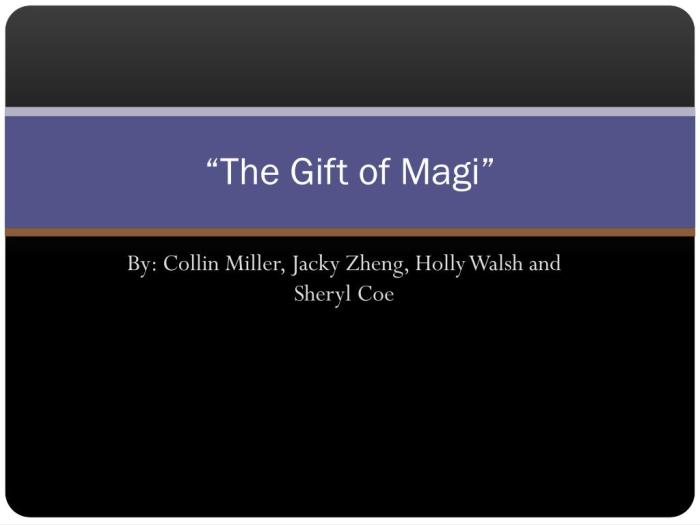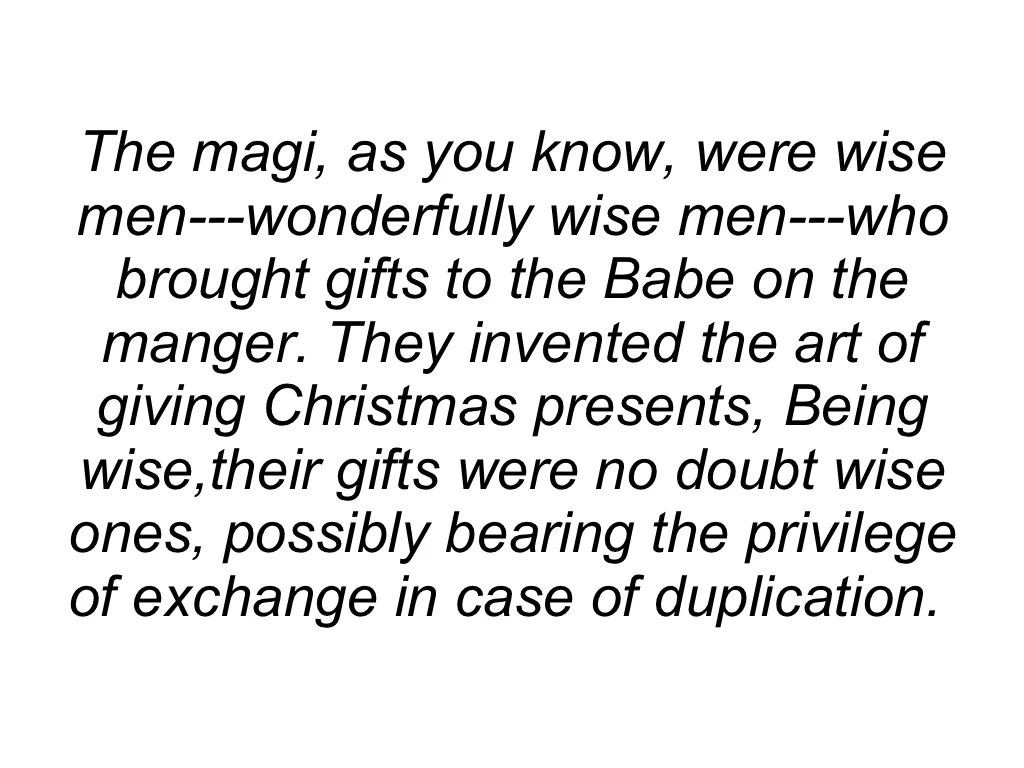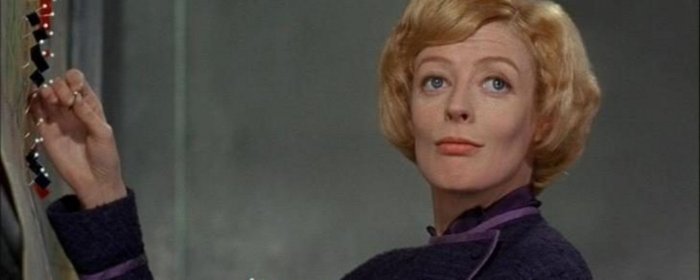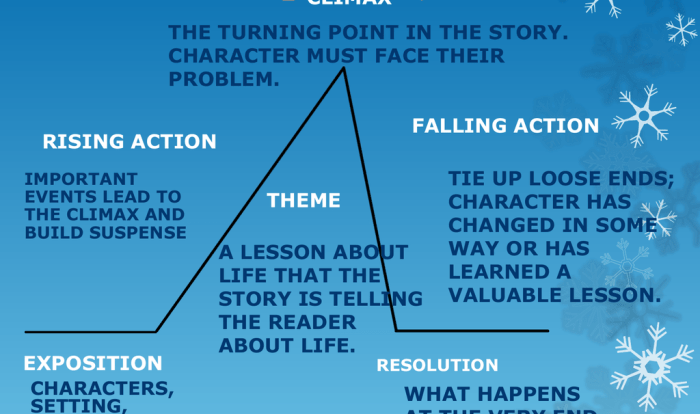Alliteration in the gift of the magi – Alliteration in “The Gift of the Magi” is a masterful literary device employed by O. Henry to create a symphony of sound and convey profound themes. This engaging exploration delves into the intentional use of alliteration, its symbolic significance, and its enduring impact on readers.
Through vivid examples and insightful analysis, we uncover the ways in which alliteration enhances the story’s rhythm, emphasizes key moments, and reflects the characters’ struggles and sacrifices.
Definition and Examples of Alliteration

Alliteration is a literary device that involves the repetition of consonant sounds at the beginning of words that are close together. This repetition creates a sense of rhythm and flow in the writing, making it more memorable and enjoyable to read.
In “The Gift of the Magi,” O. Henry uses alliteration to create a variety of effects. For example, in the opening paragraph, he describes Della’s hair as “soft and brown.” The repetition of the “s” sound creates a sense of smoothness and softness, which is appropriate for Della’s hair.
O. Henry also uses alliteration to create a sense of urgency and excitement. For example, when Della is trying to sell her hair, she says, “I want quick money, right away.” The repetition of the “q” sound creates a sense of urgency, which is appropriate for Della’s situation.
Intentional Use of Alliteration: Alliteration In The Gift Of The Magi

O. Henry intentionally uses alliteration in “The Gift of the Magi” to create a variety of effects. For example, he uses alliteration to emphasize certain words or phrases. For example, when Della is trying to sell her hair, she says, “I want quick money, right away.”
The repetition of the “q” sound emphasizes the word “quick,” which is important to Della because she needs the money right away.
O. Henry also uses alliteration to create a sense of tone or mood. For example, when Della is feeling sad and lonely, she says, “I have no money, no friends, no hope.” The repetition of the “n” sound creates a sense of sadness and loneliness, which is appropriate for Della’s mood.
Symbolism and Meaning
The use of alliteration in “The Gift of the Magi” also has symbolic meaning. For example, the repetition of the “s” sound in the description of Della’s hair suggests that she is a soft and gentle person. The repetition of the “q” sound in Della’s request for “quick money” suggests that she is in a hurry and needs the money right away.
The use of alliteration in “The Gift of the Magi” also reflects the themes of the story. For example, the repetition of the “s” sound in the description of Della’s hair suggests that she is a selfless person. She is willing to sacrifice her own hair in order to buy a Christmas present for her husband.
Cultural and Historical Context
The use of alliteration in “The Gift of the Magi” is also influenced by the cultural and historical context of the story. Alliteration was a popular literary device in the late 19th century, when O. Henry was writing. Many other authors of the time, such as Mark Twain and Bret Harte, also used alliteration in their writing.
The use of alliteration in “The Gift of the Magi” also reflects the oral tradition of storytelling. Alliteration is a device that is often used in oral storytelling because it helps to make the story more memorable and easier to remember.
Comparison with Other Literary Devices

Alliteration is one of many literary devices that O. Henry uses in “The Gift of the Magi.” Other literary devices that he uses include simile, metaphor, and personification. Alliteration is similar to simile and metaphor in that it creates a sense of comparison.
However, alliteration is different from simile and metaphor in that it does not use the words “like” or “as.” Alliteration is also similar to personification in that it gives human qualities to nonhuman things. However, alliteration is different from personification in that it does not use the words “is” or “are.”
Alliteration in Contemporary Literature
Alliteration is still a popular literary device in contemporary literature. Many contemporary authors, such as J.K. Rowling and Stephen King, use alliteration in their writing. Alliteration is used in contemporary literature to create a variety of effects, such as emphasis, tone, and mood.
It is also used to create a sense of rhythm and flow in the writing.
The use of alliteration in contemporary literature is a testament to the enduring power of this literary device. Alliteration is a device that can be used to create a variety of effects in writing, and it is a device that continues to be used by authors today.
Detailed FAQs
What is alliteration?
Alliteration is the repetition of the same consonant sound at the beginning of multiple words in close succession.
How does alliteration contribute to the sound and rhythm of “The Gift of the Magi”?
Alliteration creates a pleasing and memorable rhythm, enhancing the story’s musicality and making it more enjoyable to read aloud.
What is the symbolic meaning of alliteration in the story?
Alliteration can symbolize unity, connection, or emphasis, reflecting the characters’ shared experiences and the interconnectedness of their lives.


